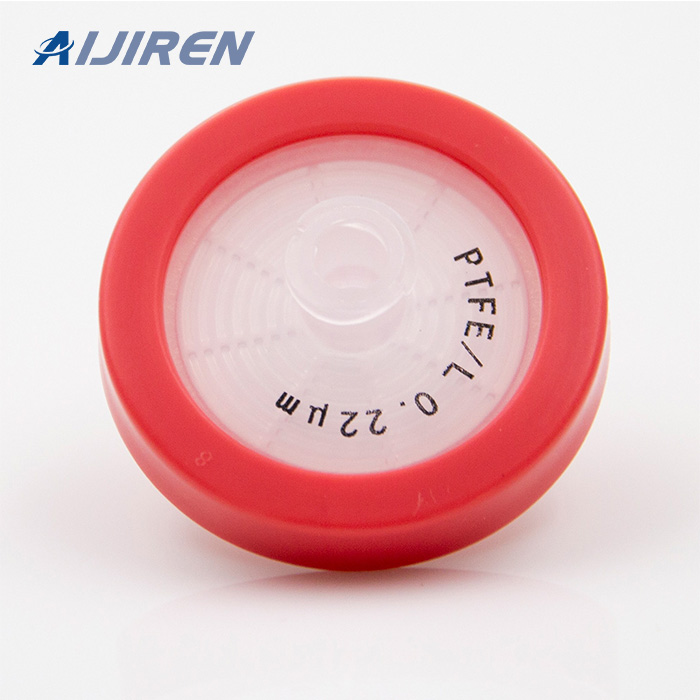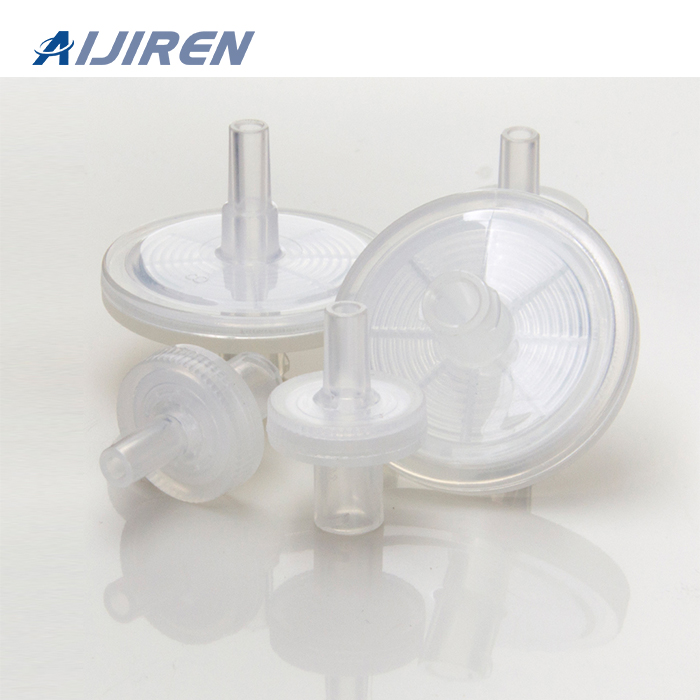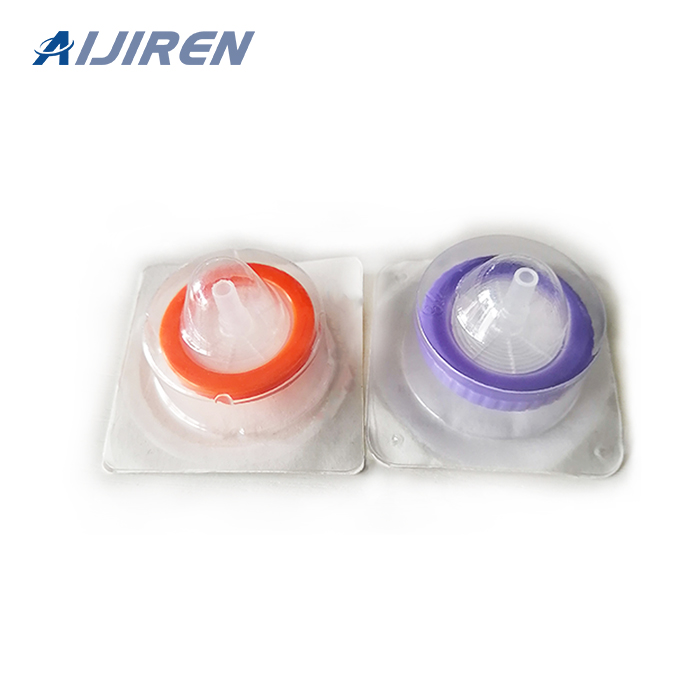


Versatile filter for aqueous and aggressive organic solvent-based solutions. Low protein binding membrane gives high recovery of critical proteinaceous samples. Accurate analysis. HPLC certified for low levels of UV-absorbing extractables. 13 mm Acrodisc syringe filter with minispike configuration offers low hold-up and easy filtration into autosampler vials.
Versatile filter for aqueous and aggressive organic solvent-based solutions Low protein binding membrane gives high recovery of critical proteinaceous samples AutoPack™ packaging is easy to use and the Automation Preferred™ certification assures you of smooth operation and worry-free performance 24 hours a day in automated workstations
In this study, we quantified the adsorption of immunoglobulin G (IgG) protein onto several polyelectrolyte-modified sintered porous polyethylene (PPE) membranes. The polymer surfaces had both cationic and anionic charges obtained via the adsorption of polyethylenimine (PEI) and polyacrylic acid (PAA
Membrane with Chemical Compatibility for Aqueous Solutions and Aggressive Solvents. Maximum versatility. Filters aqueous solutions or aggressive chemicals. Low protein binding membrane gives high recovery of critical proteinaceous samples. HPLC certified. Provides assurance that the filter will not add artifacts to your analysis. Low API
The Sterlitech nylon membrane filters are constructed of nylon 66 polymer. Nylon 66 in inherently hydrophilic, nontoxic, and has good resistance to organic solvents. These membrane filters also have an integral nonwoven polyester (polyethylene terephthalate) support layer.
The membrane is hydrophilic with low water breakthrough values. It offers good chemical resist-ance to all common HPLC solvents, has low protein binding and negligible extractables. Typical applications Filter Media Typical Application NYL Aqueous and/or organic samples; hydrophilic PES Aqueous sample PTFE Organic based samples Hydrophobic membrane
Mar 18, 2013 · Bio-based polymers similar to conventional polymers are produced by bacterial fermentation processes by synthesizing the building blocks (monomers) from renewable resources, including lignocellulosic biomass (starch and cellulose), fatty acids, and organic waste. Natural bio-based polymers are the other class of bio-based polymers which are
protein binding. • Hydrophilic membrane for aqueous or organic sample matrixes • Use with protein or peptide-based assays The hydrophilic polypropylene membrane is easily wetted with water and does not require pre-treatment with alcohols. Compatible with biological samples. Do not use with strong organic solvents, especially aromatic and
of gaseous or organic solvent-based samples. The modified membrane exhibits broad chemical resistance and unsurpassed temperature stability to address aggressive sample matrixes and extreme temperature situations. Low protein binding membrane The hydrophilic PTFE membranes are suitable for filtration of aqueous or highly aqueous/organic samples.
Regenerated Cellulose (RC) Hydrophilic membrane with good solvent resistance, extremely low nonspecific binding; compatible with nearly all common HPLC solvents; tolerates aqueous samples in pH range of 3 to 12. Membrane of choice for low nonspecific binding applications; Tissue Culture media filtration and general biological sample preparation
Hydrophilic Durapore ® membranes exhibit very low protein binding and are used to filter protein solutions. Conversely, hydrophobic Durapore ® membranes exhibit high protein binding. Regenerated cellulose membranes are hydrophilic, spontaneously wet in water, and feature strong chemical resistance for filtering both aqueous and organic solutions.
Sep 04, 2021 · On the other hand, water has been reported to be a bad solvent for cannabinoids, raising the relevant issue of water-based preparations derived from cannabis, such as decoction [56, 64–66]. Prescribing a cannabis-based decoction, considering the low recovery rates of THC and CBD and, consequently, the high volume of preparation that the
GH Polypro (GHP) Membrane Disc Filters Hydrophilic polypropylene membrane with maximum chemical compatibility when filtering both aqueous solutions and aggressive solvents. High recovery of critical proteinaceous samples due to low protein binding.
with organic solvents; low non-specific protein binding. Filtration of biological samples; filtration of aggressive organic solutions. Polyethersulfone High flow rates with good throughput volume; low protein binding; compatible with high temperature liquids; mechanically strong membrane low in extractable ions. PES is certified for ion
Polypropylene Hydrophilic membrane has wide chemical compatibility with organic solvents; Filtration of biological samples; filtration of low nonspecific protein binding aggressive organic solutions PTFE Hydrophobic membrane is resistant to nearly all solvents, acids, and bases; membrane is Filtration of aggressive organic, highly basic or